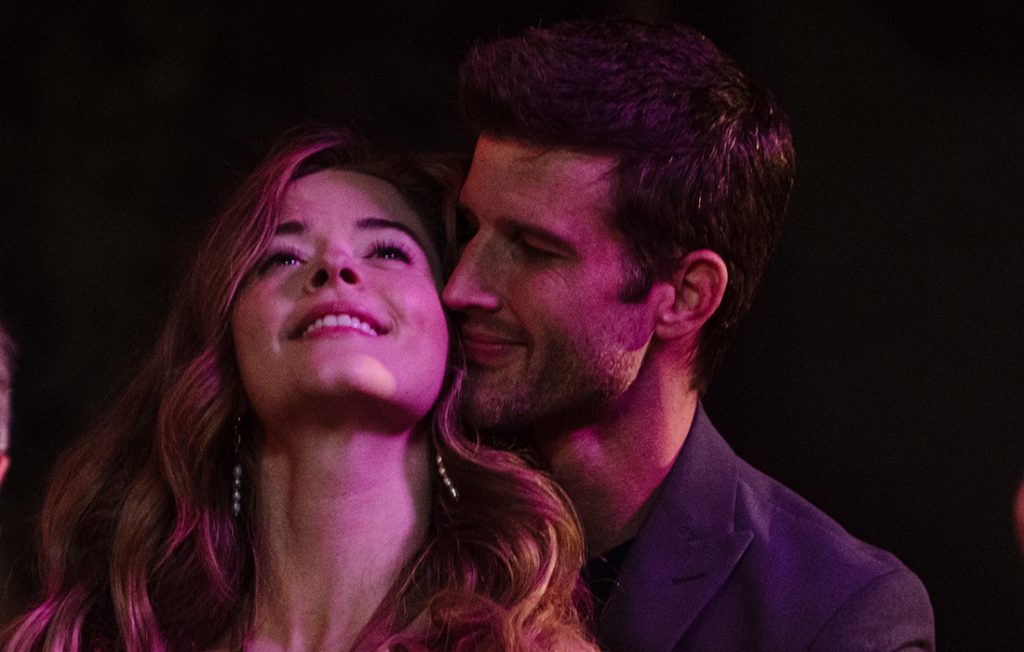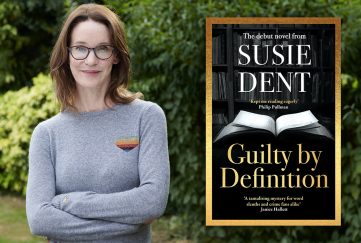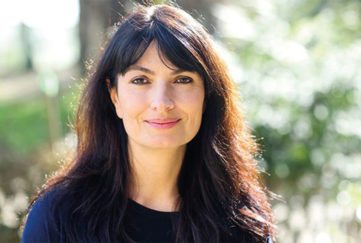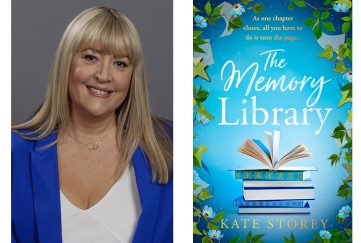Adele Parks On Writing & Filmmaking
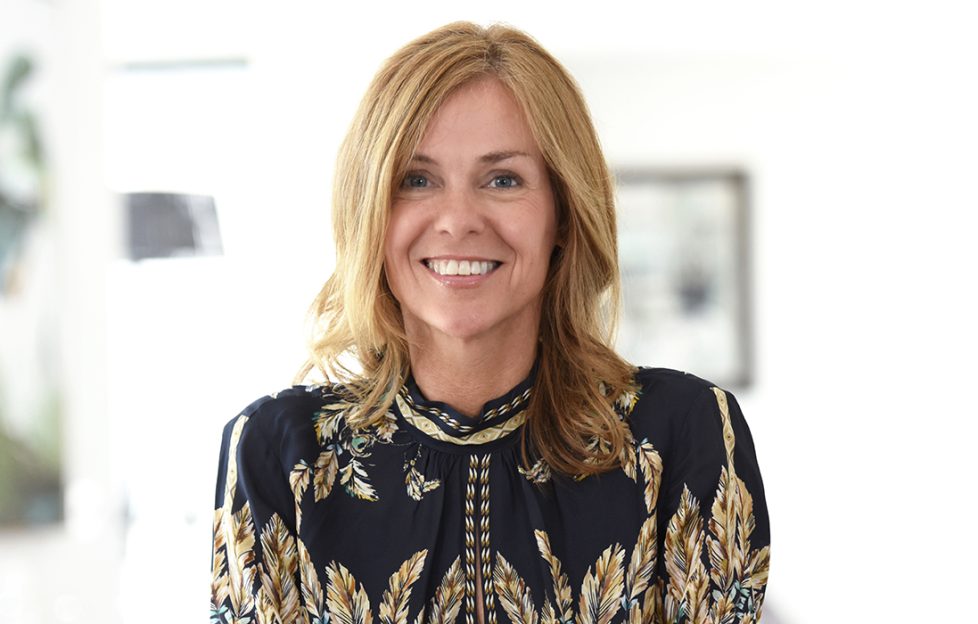
Following the release of The Image of You, the movie based on her novel, we catch up with Adele Parks to talk about writing, filmmaking, and our My Weekly short story competition.
Adele Parks on her fascinating writing career – and her first film adaptation
The Image of You is being made into a film – how do you feel?
This is the first time any of my books have been adapted into a film, despite the fact that I’ve written twenty-three bestselling novels and The Image of You was actually my seventeenth one. Therefore, like with anything that is a first, I’m feeling a mix of many things – incredible excitement and a level of nervousness too!
How much involvement did you have with the filmmaking process?
I had a lot more involvement with the filmmaking process than most writers usually get. From the initial pitch to MPCA (the producers) I was very involved. This was largely due to the fact that the head and founder of MPCA was deeply respectful of my storytelling process – and I think I make him laugh! He invited my opinion and collaboration more than most producers might.
I am aware that a book and a film are two very different forms of entertainment, and both involve different skillsets to make them successful. I didn’t want to write the screenplay because at that point I wasn’t sure I knew enough about the process. I was introduced to a wonderful man called Chris Sivertson, and he wrote the screenplay. I was lucky, he was great to work with. He was confident with his own skillset and had a vision. On top of that, he was open to suggestions and really seemed comfortable with me having input. He knew I knew the characters inside out and wisely leaned into that. I gave notes and helped polish the script. He did a brilliant job of taking the essence of the story and transporting it to a punchy, pacey, highly-entertaining script.
I also went on set as a creative consultant throughout almost the entire shoot. The idea was if the actors needed help in thinking through their motivation or background, I was there for them to call upon. I’m so proud of the relationships I built with the actors, in particular Sasha Pieterse (who plays not just one lead but two, as she is twins in this movie), Parker Young, Ben Milliken and Michele Nordin, who were all such fun on the set. Sasha and Parker had some very demanding and intimate scenes to play, so I was very glad to offer any support. I also could be called upon to have an opinion on make-up or costume or even setting and location, as all these things are integral to character and plot. The crew were incredible, so talented and dedicated.
On set, the director leads everything. It becomes his baby, his vision and world. I thought of it a little like having a child and then taking it to school. It will always be my baby, but at school there are new sets of rules, influences, direction, learnings that the child needs to accept to grow and reach a new level. The job of a parent is to launch and let go, see what a child becomes. It’s the same with writing a book that becomes a movie. The job of the writer is to launch and let go, see where the other creatives do.
Have you noticed any big differences between how a story is told in print versus how it is told on screen?
There are differences and there should be. A novel is a private dialogue between writer and reader, a movie is a much more communal entertainment experience. If a novel is on an audiobook it might take fifteen hours or more to read, a movie is all over in ninety minutes. Therefore, the story must be told in a different way. Time and budget constraints also affect how a story is told. My imagination is limitless and not constrained by either reality!
The ending in the film is different from the ending in the book, which I know will shock some readers, but I’m very happy with both. I was involved with the screenwriting process, so I understood all the decisions to make changes. I suggested quite a few!
Can you tell us a little bit about The Image of You?
The Image of You is about twins Anna and Zoe who are identical in appearance and utterly different in personality. Anna is romantic, naive and hopeful that the world will give her a “Happily Ever After”. Zoe is seductive, secretive and disruptive; she thinks the world offers up nothing but heartbreak, disappointment and untrustworthy men. Despite their different outlooks, they love each other enormously and share a bond so close that nothing – and no one – can rip them apart. Until, that is, Anna meets charismatic Nick and falls quickly and deeply in love. She thinks Nick is perfect, but Zoe thinks he is a liar. Zoe has seen Anna betrayed by men before. She’ll stop at nothing to expose Nick as the cheat she believes he is. The story is very twisty, sometimes dark, sometimes funny. I think that was captured in the movie, which is a very entertaining, pacy, crazy ride!
Where did you get the inspiration for the book?
I find some themes pop up in my writing over and over again in different ways. One of those themes is fidelity. At the beginning of this novel (and movie) Anna asks Nick to be one hundred per cent honest with her. It sounds simple enough, but in fact it’s a hard thing to achieve with anyone. I wanted to really examine why people struggle with honesty and fidelity.
The book contains a couple of good surprises – what does it take to create a twist in a story that will shock readers?
I think the important thing is strong and concentrated plotting, combined with a deep understanding of the character’s motivation and personality traits. I find that repeatedly asking myself, “What happens next and why does that happen?” is more important than worrying about where and when. Twists and timing tend to be instinctual for me.
When did you know that you wanted to be a writer – and when did you realise you could make it your career?
I wanted to be a writer since I was a little girl. I always read voraciously and found that writing was second nature to me. It’s the best way for me to process my thoughts, feelings and experiences. I set myself the ambition of writing a novel before my thirtieth birthday and just cracked on. I had a day job, so I wrote at nights and the weekends. On the eve of my thirtieth, I took my unsolicited manuscript to an agent. I didn’t have any connections or publishing insider knowledge; I simply researched and approached. I was incredibly lucky as the first agent I approached, Jonny Geller at Curtis Brown, took me on as a client. He pitched my manuscript to six publishers and all six accepted it. In the end I was offered more than six year’s salary to write two books. I realised straight away that I could give up my day job. My first novel was published when I was thirty-one and since then I have published a new novel every year.
Do you have writing process that you tend to stick to, or has that evolved throughout your career?
My son also turns twenty-four this year; I’ve been a mum throughout my career. When he was younger, I had to develop my writing process around him. I wrote during school hours and term time, knowing the clock was always ticking. This way I could be as available to him as possible. It wasn’t always perfect or easy, but any working parent knows that it’s a juggling act. Sometimes it felt strange to leave a big dramatic scene hanging, while I stopped to play Lego. Now, I have a lot more time. I write 1,000-2,000 words five days a week, and edit as I go. This process meant that I had time to Exec Produce this movie. Being a mum and a writer are my two favourite roles in life. Now, however, I’m finding my fifties so much fun. I have a lot better social life and time to explore other creative or philanthropic projects.
When you’re not writing, how do you manage to switch off and relax?
Writers never quite switch off. I can’t make my brain not think about plots, people, motivation, “what if” moments. Those sorts of thoughts are constantly swirling around my head. Besides, I don’t feel any need to switch off from writing, in fact I find writing relaxing. I do however think it’s important for me to switch off from the other aspects of my work – promoting, social media, emails, etc. So, in my down time I like to read and I do yoga. Both things mean I have to put my phone down.
You’re judging a short story competition for us at My Weekly – what kind of things are you hoping to read from the entrants?
I would like to see something that is both beautifully written and well plotted. A short story should have a twist at the end, or at least a surprise that packs a punch. I don’t mind what setting or time period the stories are, I don’t mind what genre. People often think short stories have to be very serious, but I encourage humour too, if that’s your leaning. The mistake some people make in short story writing is to deliver up a slice of a novel, rather than a contained story, so try to avoid that.
Do you have any tips for budding writers who are looking to get started?
My first big tip for writing a novel is: get writing. So many people say to me that they want to write a novel, but never write anything longer than a shopping list! Harsh, but true. Try to write something every day, even if it’s just for ten minutes and even if you’re not in the mood. If you’re stuck for something to write about, set yourself tasks, such as describing what you can see if you look out of the window, or your earliest memory, or how a new dish tastes. It doesn’t matter what you write, it simply develops discipline.
Also, have fun. If you don’t enjoy what you’re writing, no reader will enjoy reading it.
I think it is important to read a lot because that’s essential for all good writers. Averagely, I read a book a week.
What are some of the realities (good and bad!) of pursuing writing as a career?
I have done TEDx Talk on what it takes to be a successful writer, and in it I talk about the importance of resilience. Writers do need to be comfortable with their own company because you are on your own a lot. It can be very lonely. There are always disappointments along the way.
The reality is it’s extremely tricky to get published. There are a lot of disappointments and rejections. And even when you do get published, it’s very hard to make a living out of being a writer; only a very small percentage of us do. All that said, the creative freedom, the joy of being able to play, explore and create outweighs the drawbacks for me.
Who in your career has been your favourite character to write?
Dora in One Last Secret is my all-time favourite. She’s so brave and unconventional; both strong and vulnerable. Dora is a high-end escort who knows she must get out of this dangerous line of work and put her past behind her. She takes on one last client, thinking a week at a beautiful French chateau should be an easy final job. But as the guests assemble, it becomes terrifyingly apparent that escaping her past is impossible. It’s a blisteringly provocative novel about power, sex, money and revenge, and Dora is so gutsy as the lead character. I found myself admiring her, which was unexpected.
What are you working on just now, and what can fans expect next?
On July 4 I’m bringing out a new psychological thriller called First Wife’s Shadow. It’s about Emma, a smart, wealthy and grounded women who has worked hard for her success. When she meets Matthew, a kind, handsome widower, he seems like the icing on the cake. Initially, Emma’s friends are delighted, but as the relationship quickly develops, they worry Emma could be being exploited as she’s a rich woman and Matthew doesn’t have two pennies to rub together.
While Emma isn’t worried about Matthew having so much less than her, she does have one tiny doubt about her new relationship. If Matthew’s wife hadn’t died, he wouldn’t be with her. And sometimes Emma wonders if she is second best. The more she thinks about Matthew’s first wife, the more obsessed she becomes with a woman she can never know. As jealousy and suspicion blossom between Emma and Matthew, events take a darker, dangerous turn. Emma becomes confused about who she can trust. Her friends? Her husband? Or even herself…?
I’m really looking forward to hearing what people think of this new novel.
Besides that, a second novel of mine is currently being adapted into a movie. I can’t tell you which one at this stage but it’s a really busy, exciting time.
The Image of You Short Story Competition
If Adele’s words have inspired you to pursue your own writing, why not enter our short story competition?
You’ll find full competition details on requirements, where to enter and T & Cs here.
Read a book review of The Image of You now.

